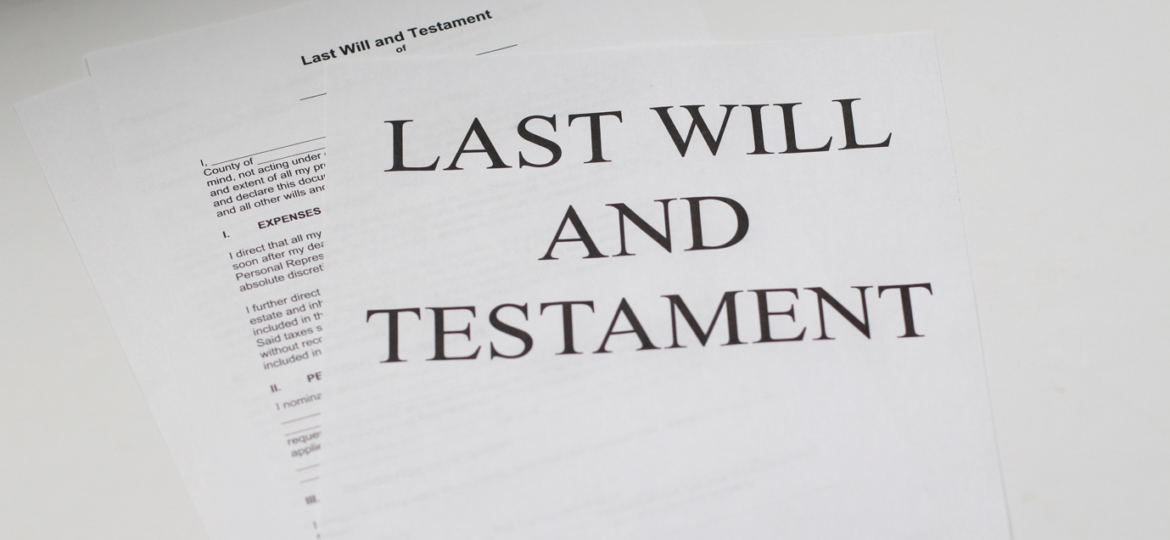
A will is a document that indicates how your assets will be divided amongst your children, spouse, other family members, or any other beneficiaries after you pass away. It’s part of an estate plan that handles a person’s healthcare bills, financial planning, taxes, and other things.
Many people used to think drafting a will was something they needed to do after they had grown old and had amassed plenty of assets and properties. However, writing a will as soon as you turn 18 or of legal age is the best way to ensure your matters are dealt with in the way you want, even if you pass away in an unfortunate accident.
A will is not final, has no authority until you are alive, and can be updated. In fact, as you grow older, there will be instances where you must update your will accordingly. Let’s take a look at these instances in this blog.
1. You Have a Child
The birth of a child is one of the biggest events in any person’s life, which is why it’s natural that people update their will when it happens, especially if it’s their first child. This is because there are a lot of things included in a will that can directly affect your child in case you pass away in an unfortunate accident or event.
For example, you will have to name a guardian for your child if you pass away and name a trustee who will manage your assets and properties in a trust until your child is old enough to get them. You can mention each child or mention that this applies to all of your children.
It’s best if you update the will before your child is born. This gives you time to carefully think everything through instead of rushing it because taking care of a child is time-consuming and demands attention at all times.
2. You’re Thinking About Getting a Divorce
If you plan on getting divorced, it’s best to update your will before filing for it. Your spouse has a right to a certain percentage of your assets and properties, and divorce settlements often take a long time because of the complexities involved. Often, a person is not allowed to change their will after a divorce has been filed until it’s not completed.
If you pass away before the divorce has been filed or finalized, your complete estate can go to your spouse. If you don’t want that, updating your will before filing for divorce is the solution.
3. You are Divorced
If you are divorced, your former spouse doesn’t have a right to your assets and properties unless the terms of the divorce state they do. However, if you don’t update your will, your estate may go to them when you pass away.
Some provinces in Canada have laws that state that if a will isn’t updated after divorce, the former spouse of the person is not entitled to the assets and properties unless mentioned in the divorce settlement. However, this gets complicated because determining who gets your estate can take years. This is why updating your will after you get divorced is important.
4. Your Children Get Married
Most people tend to leave their state to their children. As their children grow up and become adults, they start their own life. If your child is planning to get married, it’s best to consider updating your will to accommodate your son-in-law or daughter-in-law because they are your child’s spouse and have a right to whatever estate they get from you unless you don’t want them to.
Sometimes, people add prenuptial agreements in their will to ensure their children are not taken advantage of by their spouses, and their children are the ones who receive all of their estates. Sometimes, people insert clauses for divorce and ensure their estate is not a marital asset and should not be divided in case their children get a divorce in the future.
It’s best to update your will as soon as your child plans to get married in case you pass away before the marriage (or the divorce, if it comes to that).
5. A Beneficiary or the Executor Dies
A will has two types of people mentioned, the beneficiaries and the executor. Beneficiaries are the people who receive your assets and properties after you pass away. This could be your spouse, children, siblings, parents, family members, friends, or any charitable organization. An executor is a person who is responsible for executing your will and ensuring everything is done as per your wishes. An executor can also be anyone you choose, like your wife, relative, or even a wills and estate lawyer.
If one of the beneficiaries dies, you may want to reconsider naming them in your will. This is because if a beneficiary dies, their children have the right to receive your estate. For example, one of the beneficiaries in your will is your child. However, if your child passes away before you, your grandchildren from that child will receive what you planned to give to your child unless you plan to alter it by updating your will. Similarly, if your will’s executor dies, you must change your will and name a new executor.
6. A Beneficiary Develops Substance Abuse or Credit Problems
Often, a will leaves money directly to a beneficiary instead of a trust. However, you may want to reconsider your decision if you see that beneficiary develops problems like substance abuse or credit line abuse. Handing over money to a person struggling with problems like these can aggravate it, which is why updating your will accordingly, like having a trustee with a dedicated trust, is the best way to deal with it.
7. Young Family Members Become Responsible Adults
When you were younger, you may have made your spouse or your parents your executioner in your initial will. With time, they get older and may no longer be suited for the role. Simultaneously, younger family members, like your children, younger siblings, or even grandchildren, may become responsible adults. You may feel it’s better to leave the task of executing your will to these people, which is why you should update your will as soon as you feel a certain person is not best suited to be your will’s executioner and you know another person that is ready for it.
8. A New Law is Passed
Laws and legislation keep changing over the years. Sometimes, certain new laws may be passed that drastically affect your will by affecting your assets and properties, like increased taxes, capital gains taxes, and more. Staying updated is the best way to ensure your will is up-to-date per the latest laws and legislation. Working with a wills and estate lawyer can help you stay updated regarding any change of laws.
9. Your Relationship Deteriorates
Sometimes, relationships deteriorate over time. This doesn’t necessarily mean your relationship with your spouse or partner; it could also mean the relationship between two of your beneficiaries.
For example, your relationship with one of your children deteriorates up to a point where you no longer want them included in your will. Similarly, one of the relatives or friends you mentioned in your will may not have a great relationship with the rest of the beneficiaries, and things escalate up to a point where you feel beneficiaries like your spouse or your children will challenge your will and get their right to your estate revoked.
In cases like these, you need to update your will and add clauses, like the no contest clause, that ensure no one can challenge your will, and it will be executed as you mentioned unless it’s something not legal.
10. You’re Unable to Find Your Old Will
Sometimes, a person loses the original version of their will. A copy can complicate things and result in delays in the execution of your will. If this is the case, it’s best to replace your old will with a new one immediately. You may not even make any changes to it; it just needs to be an original document instead of a copy.
If you want to update your will, it’s best if you work with experienced wills and estate lawyers to ensure everything you do is legal. This will also ensure that your new will can be legally enforced and can’t be challenged in court. If you’re looking for a will and estate lawyer in Mississauga, Nanda & Associate Lawyers can help you.
Our team of wills and estate lawyers helps clients with their will and estate planning matters. Moreover, we also have immigration lawyers, business lawyers, and civil litigation lawyers.
Book a meeting with us today.
Disclaimer: This article is only intended for educational purposes and shouldn’t be used as a substitute for legal advice.









